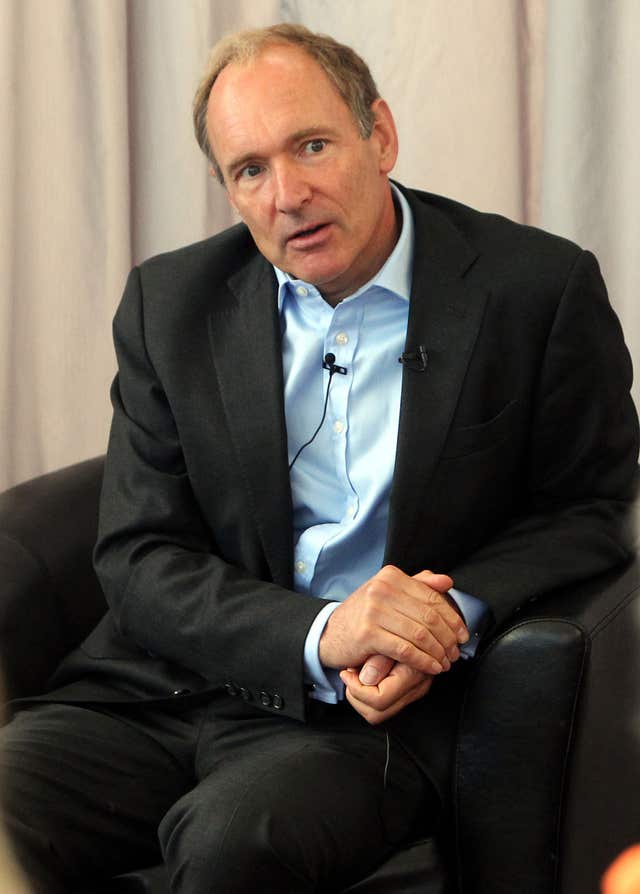Breaking up the tech giants will not boost competition, says GoFundMe boss
Chief executive Rob Solomon said China’s Alibaba and Tencent would step in to fill the void.

Breaking up the likes of Google and Facebook will not boost competition and risks creating a vacuum for other tech giants to step in, the boss of crowdfunding site GoFundMe has warned.
Rob Solomon, the chairman and chief executive of Silicon Valley-headquartered GoFundMe, told the Press Association it would be wrong for regulators to “jump in” and increase competition by force.
He cautioned that if the big US players were broken up, then others such as China’s Alibaba Group and Tencent would simply fill the void.
His comments come amid mounting global calls to address the dominance of the tech behemoths, which has been brought to the fore after Democrat Elizabeth Warren proposed breaking them up if elected to the US presidency in 2020.
In the UK, Chancellor Philip Hammond announced in his Spring Statement that the competition watchdog will examine the tech firms’ stranglehold over the £14 billion digital advertising market.
But Mr Solomon said: “I don’t believe in breaking up the big players unless they have to be, and I don’t think we are at that point.”
“Alibaba and Tencent are just as big – if the big guys are broken up, it leaves a vacuum for them,” he said.
Taking a swipe at Ms Warren’s campaign promise in the States, he said it was a “bold platform to run on and I don’t think it’s the right one”.
He added: “I worry a lot when government jumps in.”
But he admitted there is a “darker side” of the internet that needs addressing, following a plea by world wide web inventor Sir Tim Berners-Lee to stop its “downward plunge to a dysfunctional future”.
Mr Solomon said GoFundMe – which claims to be the world’s largest crowdfunding platform with more than £4 billion raised since launch in 2010 – is part of a “bright side” of the web.

“There’s an antidote to that where people come together to help each other out.”
He added: “Sir Tim Berners-Lee has the right to cry foul, because he helped to create the internet and we do need to fix things, but there’s a very bright side.”
GoFundMe has raised around £250 million through 175,000 campaigns in the UK alone since 2010 – a sign of the “countless examples of the good” that the internet can bring, according to Mr Solomon.
Yet despite having provided a welcome platform for people to reach out for funding for all manner of causes, GoFundMe has not itself been immune to the “darker side” of the web.
Scammers have been caught raising funds for their own benefit, while it has more than once recently been caught up in controversies surrounding campaigns on its site.
Most recently, the group stepped in to ban fundraising for cancer treatment at the controversial Hallwang clinic in Germany amid concerns that vulnerable patients and donors are being exploited.
It also shut down accounts attempting to raise money for US singer R Kelly to help fund his legal defence against multiple allegations of having sex with minors, which he denies.
Mr Solomon – whose career includes stints heading up deals site Groupon and online travel search engine SideStep, since sold to Kayak – said the group has a “dedicated trust and safety team working around the clock” to police campaigns, but said it does not want to judge which causes are worthy.
“As long as our terms of service aren’t violated, we welcome most causes,” he said.
The site has also been accused of putting pressure on traditional charities, although it claims to work in tandem with the sector, offering people the chance to raise money for their chosen charities.
But Mr Solomon has a stark warning for those charities which have yet to move online, in a sign of the shift in the giving sector.
“If you’re a charity and haven’t embraced digital yet, you’re in peril.
“In the next five years or so, you’ll be out of business.”





